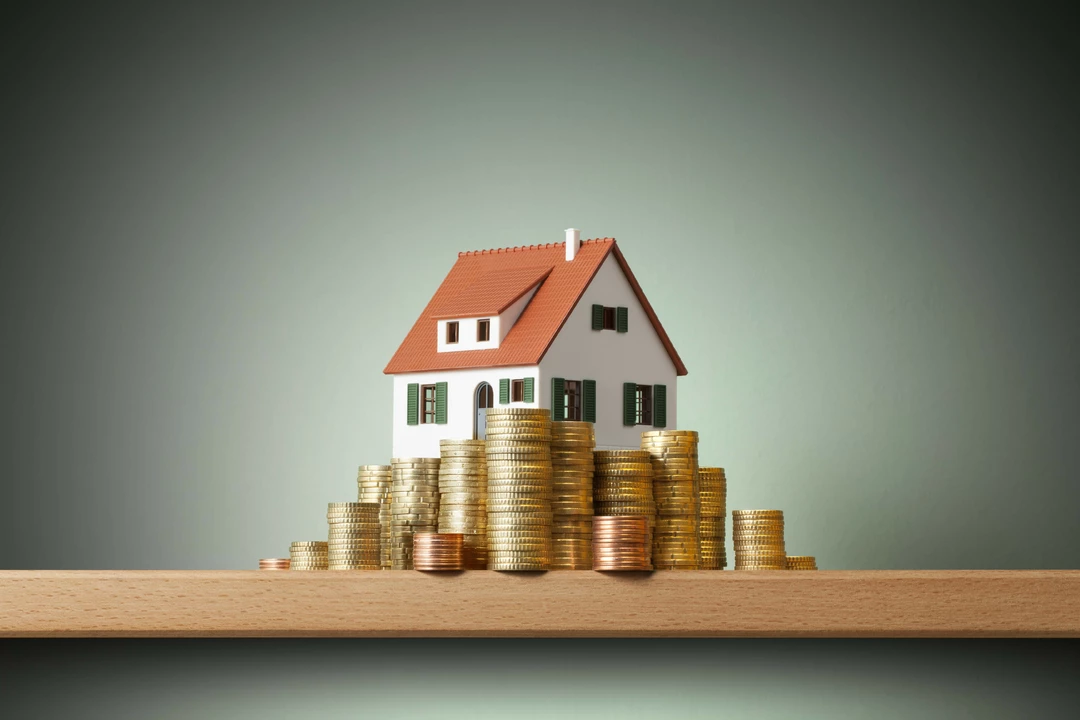Real estate renting offers a variety of economic benefits, including the concept of economic rent. Economic rent is the income generated from a property that is above and beyond the operating costs of the property. This income is generated from the value of the property itself, and not from any improvements or services provided by the property owner.
Economic rent is a great way for real estate investors to make money on their investments. It allows investors to benefit from the appreciation of the property’s value. This is because the rent paid is higher than the costs associated with operating the property. As the value of the property increases, so does the economic rent.
Real estate investors can also benefit from the tax advantages that come with collecting economic rent. For instance, when the rent collected covers the cost of the property taxes, the investor can deduct the costs from their taxes. This helps to reduce the investor’s overall tax burden.
Additionally, economic rent can be used to help finance other investments. By using the rent collected from a property, investors can use the money to invest in other real estate, stocks, bonds, or other financial products. This allows investors to diversify their portfolio and reduce their overall risk.
Overall, economic rent is an excellent way for real estate investors to make money on their investments. It offers a variety of economic benefits, including appreciation of the property’s value, tax advantages, and diversification of investments.
Are you considering investing in real estate, but don’t know where to start? One of the most important concepts to understand before investing in real estate is economic rent. Economic rent is the amount of money a tenant pays to occupy a property above and beyond what the property is actually worth. In other words, it’s the premium that a tenant is willing to pay to occupy the property.
When it comes to real estate investing, understanding economic rent is key. It can help you determine how much you should charge for rent, how to structure leases and more. In this guide, we’ll explain what economic rent is, how it’s calculated and how you can use it to maximize your real estate investments.
What is Economic Rent?
Simply put, economic rent is the amount a tenant pays for a property in excess of its market value. It’s the amount a tenant is willing to pay for the convenience of occupying a certain property. In other words, it’s the difference between the actual rent and the market rent.
For example, let’s say a tenant is willing to rent an apartment for $1,000 a month, even though the market rent for the same unit is only $800. In this case, the tenant is paying $200 in economic rent, which is the difference between the market rent and the actual rent.
As an investor, understanding economic rent can help you determine how much to charge for rent and how to structure leases. You can also use economic rent to spot potential opportunities in the real estate market.
How is Economic Rent Calculated?
Economic rent is calculated by subtracting the market rent from the actual rent. For example, if the market rent for a unit is $800 and the actual rent is $1,000, the economic rent would be $200.
It’s important to note that economic rent is not the same as fair market value. Fair market value is based on what a willing buyer and seller would agree to in an arms-length transaction. Economic rent, on the other hand, is based on the amount of money a tenant is willing to pay for a certain property.
How Can You Use Economic Rent?
Understanding economic rent can help you determine how much to charge for rent and how to structure leases. You can also use economic rent to spot potential opportunities in the real estate market.
For example, if you find a property where the market rent is lower than the actual rent, you may be able to capitalize on the difference and earn more money. On the other hand, if the market rent is higher than the actual rent, you may need to raise the rent or make improvements to the property to increase its value.
In addition, understanding economic rent can help you make more informed decisions about your investments. You can use economic rent to determine the potential return on investment for a particular property, as well as the potential risks associated with investing in a certain property.
Conclusion
Understanding economic rent is an important part of investing in real estate. It can help you determine how much to charge for rent, how to structure leases and more. It can also help you spot potential opportunities in the real estate market and make more informed decisions about your investments.
Real estate rental economic rent can be a great way to maximize your return on investment. The concept of economic rent is simple: it is the return on investment that comes from owning a property and renting it out. The higher the economic rent, the higher the return on investment.
When it comes to investing in real estate, there are many different ways to maximize your return on investment. One of the most popular methods is to rent out your property. This method allows you to generate an income from your property without having to liquidate any of your assets. The income from rental economic rent can be used to pay off debt, invest in other properties, or to supplement your income.
In order to maximize the return on investment, it is important to understand the factors that affect economic rent. The most important factor is the demand for rental properties in the area. If there is a high demand for rental properties, the economic rent will be higher. Additionally, the condition of the property and the location can also have an impact on the economic rent.
Another factor that can affect the economic rent is the length of the rental agreement. Generally, the longer the rental agreement, the higher the economic rent. This is because the longer the agreement is in place, the more stable the income from the property will be.
It is also important to consider the tax implications of renting out your property. Tax laws vary from state to state, so it is important to understand your local regulations. Additionally, if you are planning to rent out your property for extended periods of time, it is also important to consider the effect of inflation on rental rates.
By understanding the factors that affect economic rent, investors can maximize their return on investment. Through careful consideration of the factors discussed above, real estate investors can ensure they are receiving the maximum return on their investment.
The Pros and Cons of Investing in Real Estate with Economic Rent
Real estate investments with economic rent can be a great way to generate passive income. However, there are also some potential drawbacks that you should be aware of before making this kind of a commitment. In this article, we'll discuss the pros and cons of investing in real estate with economic rent.The Pros
- One of the biggest advantages of investing in real estate with economic rent is that it can provide a steady and reliable income. Unlike other investments, economic rent is not affected by market fluctuations, and it can provide a steady source of income.
- Another advantage of investing in real estate with economic rent is that it can be a great way to diversify your portfolio. By investing in multiple rental properties, you can spread your risk and potentially increase your return on investment.
- Finally, investing in real estate with economic rent can provide tax advantages. Depending on your circumstances, you may be able to deduct certain expenses associated with the investment, including mortgage interest, insurance, and maintenance costs.
The Cons
- One of the biggest drawbacks of investing in real estate with economic rent is that it can require a significant upfront investment. You may need to purchase the property outright, or you may need to secure financing in order to purchase the property. This can be a significant financial commitment.
- Another potential downside of investing in real estate with economic rent is that it can be a time-consuming process. You will need to manage the rental property, deal with tenants, and handle any repairs and maintenance that may be needed. This can take a significant amount of time and effort.
- Finally, investing in real estate with economic rent can be risky. The rental market can be unpredictable, and you may find yourself with tenants who don't pay their rent on time or don't take care of the property. This can lead to costly repairs or a decline in rental income.

